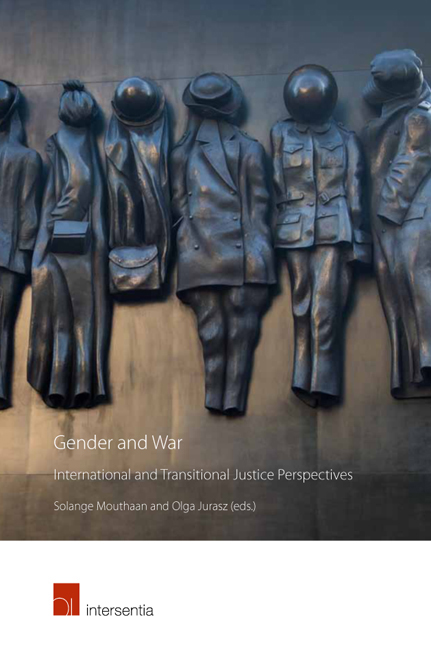Book contents
- Frontmatter
- Contents
- List of Cases
- List of Abbreviations
- List of Contributors
- Introduction
- PART I WOMEN'S INVOLVEMENT IN ARMED CONFLICT
- PART II MEN AND CHILDREN'S EXPERIENCES OF ARMED CONFLICT
- PART III GENDERED EXPERIENCES OF INTERNATIONAL CRIMINAL JUSTICE
- PART IV GENDERED EXPERIENCES OF TRANSITIONAL JUSTICE
- Children in Transitional Justice Processes: Still Sidelined?
- Conflict-Related Sexual Violence in Kosovo: Gendering Justice Through Transformative Reparations
- Staying the Course: A Call for Sustained Support of Accountability for Conflict-Related Sexual Violence in Bosnia and Herzegovina
- PART V CONCLUSIONS
- About the Editors
Children in Transitional Justice Processes: Still Sidelined?
from PART IV - GENDERED EXPERIENCES OF TRANSITIONAL JUSTICE
Published online by Cambridge University Press: 30 March 2019
- Frontmatter
- Contents
- List of Cases
- List of Abbreviations
- List of Contributors
- Introduction
- PART I WOMEN'S INVOLVEMENT IN ARMED CONFLICT
- PART II MEN AND CHILDREN'S EXPERIENCES OF ARMED CONFLICT
- PART III GENDERED EXPERIENCES OF INTERNATIONAL CRIMINAL JUSTICE
- PART IV GENDERED EXPERIENCES OF TRANSITIONAL JUSTICE
- Children in Transitional Justice Processes: Still Sidelined?
- Conflict-Related Sexual Violence in Kosovo: Gendering Justice Through Transformative Reparations
- Staying the Course: A Call for Sustained Support of Accountability for Conflict-Related Sexual Violence in Bosnia and Herzegovina
- PART V CONCLUSIONS
- About the Editors
Summary
INTRODUCTION
Children are among those most negatively affected by conflict and political repression. Some are direct victims of physical violence. Some witness the killing of family and friends. Many more suffer displacement, lose their homes and access to schooling and are deprived of food and health care. Internal instability, the breakdown of the rule of law, separation of families and fragmentation of communities make children additionally vulnerable to abduction, trafficking, sexual violence and recruitment as child soldiers. Longer term, children who have experienced conflict-related trauma oft en develop anxiety and depression. Exposure to violence affects their values, political beliefs and ability to function as future leaders and decision-makers. The absence of effective state institutions typically suffered by transitional states also disproportionately impacts children, hampering their short-term development as well as their future prospects.
Children ought, therefore, to be a central focus of transitional justice. In many post-conflict countries skewed age pyramids mean that children and youth make up over half the population. Along with adult members of society, they have suffered the violence of the past, but, as the next generation, they will inherit and must progress the results of post-conflict agreements and initiatives. They occupy a pivotal position in the reconstruction, reconciliation and long-term stability of transitional states. It is perhaps surprising then that children have typically been underrepresented in transitional justice schemes. The purpose of this chapter is to explore the reasons for the continued marginalisation of children within this context, despite the importance of transitional justice for children and the significant role that children can play within its processes.
In recent years, international institutions and organisations have devoted considerable attention to the formulation of guidelines and policies aimed at facilitating the participation of children within transitional justice processes. International legal regimes lay down obligations requiring states to respect and ensure children's rights and provide remedy and redress for violations. Yet despite some positive results in the inclusion of violations against children within truth-seeking mandates and the prosecution of crimes against children in hybrid and international courts, these efforts have yielded little in the way of tangible improvements.
- Type
- Chapter
- Information
- Gender and WarInternational and Transitional Justice Perspectives, pp. 261 - 284Publisher: IntersentiaPrint publication year: 2019



